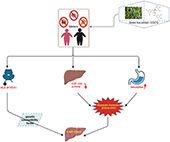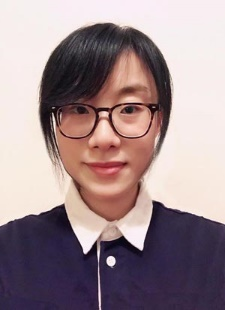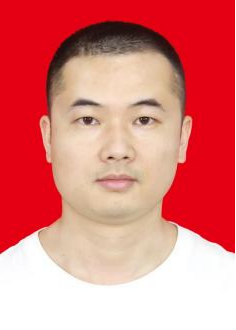Keywords: Immunoregulation; Herbal medicine; Cancer; Infectious disease This issue will explore the complex role of herbal medicines as immune mediators in the context of cancer and infectious disease. For this issue, we welcome reports of basic and translational research related to the immunobiology and immunoregulatory functions of herbal medicines or the development of novel herbal drugs, as well as clinical reports on the effectiveness of herbal medicines in immunotherapy. Immunotherapy has become a powerful tool for treating cancer and infectious diseases. With the discovery of an increasing number of immune-related targets, many herbal medicines have shown immunomodulatory function and anti-disease effects that are achieved by targeting the immune system. However, a clear understanding of the underlying mechanisms remains elusive. Characterizing the molecular mechanisms that shape the immunoediting effects of herbal medicines will be important for the development of novel drugs and treatments for both cancer and infectious diseases. Thus, in this issue, we will focus on all aspects of immunoregulatory functions of herbal medicines in cancer and infectious diseases. This issue aims not only to collect emerging studies on the immunoediting mechanisms of herbal medicines but also to illustrate how this information may be applied to the discovery of novel herbal drugs and the development of better therapeutic strategies.
Letter to the Editor

|
Hepatotoxicity of Green Tea Extract: Idiosyncratic or Indirect Drug-induced Liver Injury?
Yunjuan Gao, Xu Zhao, Dake Xiao, Chengzhao Wu, Wei Shi, Huijie Yang, Zhaofang Bai, Xiaohe Xiao
Published online: September 15, 2022
doi:10.14218/FIM.2022.00034
|
|
|

|
Guest Editor-in-Chief
Jia-bo Wang
|
Read More
|
|
Professor, School of Traditional Chinese Medicine, Capital Medical University
Dr. Wang joined Capital Medical University in November 2020 as a Professor of Clinical Pharmacology of Traditional Medicine and the Dean of the School of Traditional Chinese Medicine. His main research area is hepatology, including the evaluation of drug- and herb-induced liver injury (DILI and HILI), hepatitis, and liver fibrosis/cirrhosis. His group is dedicated to revealing the landscape of functional metabolomics in different liver diseases, including DILI and alcohol-associated liver disease, which will provide fundamental information for the application of herbal and traditional medicines in hepatology.
|

|
Guest Editor
Xin-hua Song
|
Read More
|
|
Associate Professor, School of Traditional Chinese Medicine, Capital Medical University
Dr. Song's research group studies the molecular genetics and tumor microenvironment involved in hepatic carcinogenesis. A particular emphasis of her work is the use of genomic approaches, including expression arrays, array-based comparative genomic hybridization, and murine models, to identify genes that are deregulated during liver cancer development and understanding how these genetic alterations contribute to malignant transformation and progression in vivo. In addition, she is interested in drug discovery from natural products and traditional medicines for liver cancer treatment. Dr. Song has published a series of peer-reviewed research papers in the Journal of Hepatology, Gut, Clinical Cancer Research, etc.
|

|
Guest Editor
Guang Xu
|
Read More
|
|
Associate Professor, School of Traditional Chinese Medicine, Capital Medical University.
Dr. Xu's research interests include the discovery and application of functional substances with immunomodulatory activity derived from traditional Chinese medicine (TCM). His research provides a theoretical basis for the scientific prevention and treatment of drug-induced liver injury and the formulation of countermeasures, and contributes to the interpretation of the related TCM’s material foundation and new drug design and development. He has presided over four projects (two national, one provincial and one college-level). As the first or corresponding author (including co-first author), he has published several peer-reviewed papers in the authoritative journals in related fields such as Autophagy, JCI Insight, Acta Pharmaceutica Sinica B, Cell Death & Disease, Pharmacological Research, Cell Communication and Signaling, etc.
|

|
Guest Editor
Zhi-jie Ma
|
Read More
|
|
Associate Professor, Beijing Friendship Hospital, Capital Medical University.
Dr. Ma received her PhD degree in 2013 and completed her postdoctoral research on the clinical diagnosis and treatment of digestive system diseases with traditional Chinese medicine (TCM) under the guidance of academician Lu-qi Huang. Her current research interest focus primarily on the digestive pharmacology and toxicology of TCM as well as the mechanism through with TCM achieves immune regulation in the treatment of Clostridium difficile-associated diarrhea and ulcerative colitis, and the immune regulatory mechanism of cell therapy. As the first or corresponding author, she has published several peer-reviewed papers in journals including Drug Delivery, Food & Function, Frontiers in Cell and Developmental Biology, and Frontiers in Bioengineering and Biotechnology.
|
Important Dates
Submission open date: May 6, 2022
Submission deadline: June 30, 2023
|